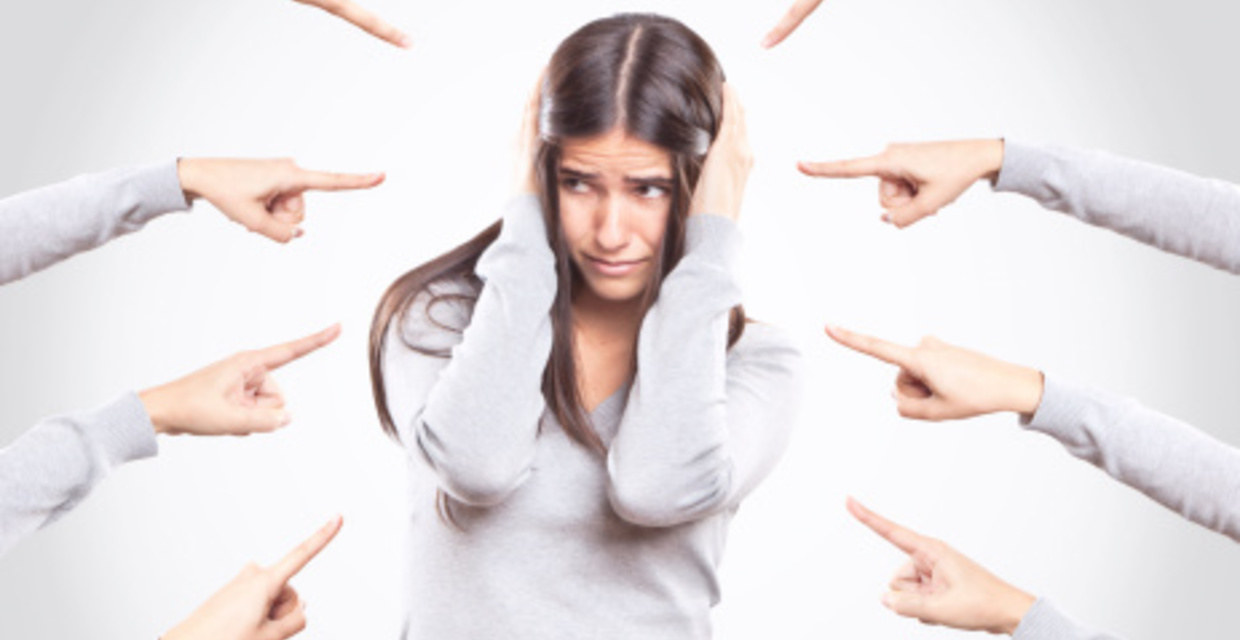Victim shaming comments and questions focus the blame on the wrong person
- May 27, 2015
- By domesticshelters.org

When women began stepping forward late last year accusing comedian and actor Bill Cosby of various incidents of sexual assault in the ‘70s, the public’s opinion was swift and clear: These women were eager for their 15 minutes of fame. Or, they were seeking money. Many asked why the alleged victims waited so long to come forward with their accusations. It seemed few wanted to believe that Cosby could be anyone but the sweet and loveable father and husband he had portrayed on TV for so many years.
Victim shaming happens across the globe every day—survivors of rape, sexual assault and domestic violence face ridicule and judgment for stepping forward and speaking out about abuse. Sometimes, this shaming comes from more than just anonymous commenters on the Internet, but also their own family and friends as well.
“Ignorance is the key reason people outside the relationship shame the victim,” says Margaret Bayston, CEO and executive director of Laura’s House, a nonprofit that has offered shelter and services to domestic violence survivors in Orange County, Calif., for the past two decades. She says the horrible part about victim shaming is that many victims—like those in the Cosby situation—are afraid no one will believe them, which is why they don’t come forward in the first place. “That’s why they wait … and then get blamed for waiting.”
Bayston says victim shaming can also be the effect of denial by those who have never experienced domestic violence or assault. “They don’t want to admit it can happen to them. But 24 people every minute are abused [by an intimate partner] in the United States,” says Bayston. “That’s something to consider when people say ‘I’ll never be a victim.’”
Victim shaming can come masked as seemingly innocent questions—What was she wearing? Was she drinking? “These comments assume the victim had a choice in this,” says Bayston. “As though, only promiscuous women get sexually assaulted. People want to distance themselves from [violence]. They think, ‘If I don’t dress that way, it won’t happen to me.’”
In terms of domestic violence, Bayston says victim shaming can appear as pressure from friends and family to make a relationship work. Survivors end up feeling like the violence is their fault and that, if they open up about it, they’ll let everyone down. Meanwhile, survivors are also judged for staying. “People see [survivors] staying with an abusive partner as weak and stupid. They say, ‘I wouldn’t put up with it.’ But it’s never that easy.”
The fact is, victim shaming makes it harder for the next victim to come forward. The first step in stopping the shame? Raising the bar for what’s acceptable, says Bayston. Sexist jokes, demeaning women in the locker room, reinforcing the stereotype that men should be macho and dominant—all of these things set up a harmful rhetoric.
“We need to encourage [survivors], let them know it’s not their fault and they’ve been mentally manipulated by their abuser. We need to let [survivors] know what options are available to them and that they’re going to be taken seriously,” says Bayston. “We’ve all got to speak out against domestic violence.”
Content retrieved from: https://www.domesticshelters.org/domestic-violence-articles-information/what-is-victim-shaming.

